“Every valley shall be lifted up, and every mountain and hill be made low;
the uneven ground shall become level, and the rough places a plain.”
(Isaiah 40:4)
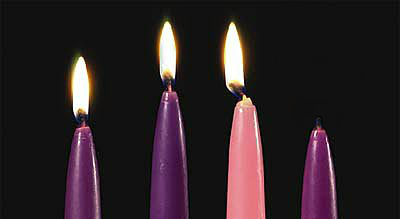
The Annunciation has happened and slowly word begins to spread. You can almost see the whispers in the night spreading out beyond Bethlehem town. The rumours are true. The wisemen, the magi, the sheep and the goats, all hear of the coming of the messiah. Things have begun looking clearer. The signs foretold have begun to appear. The scriptures, the history of the people, foretell Jesus’ incarnation. Hope fills hearts.
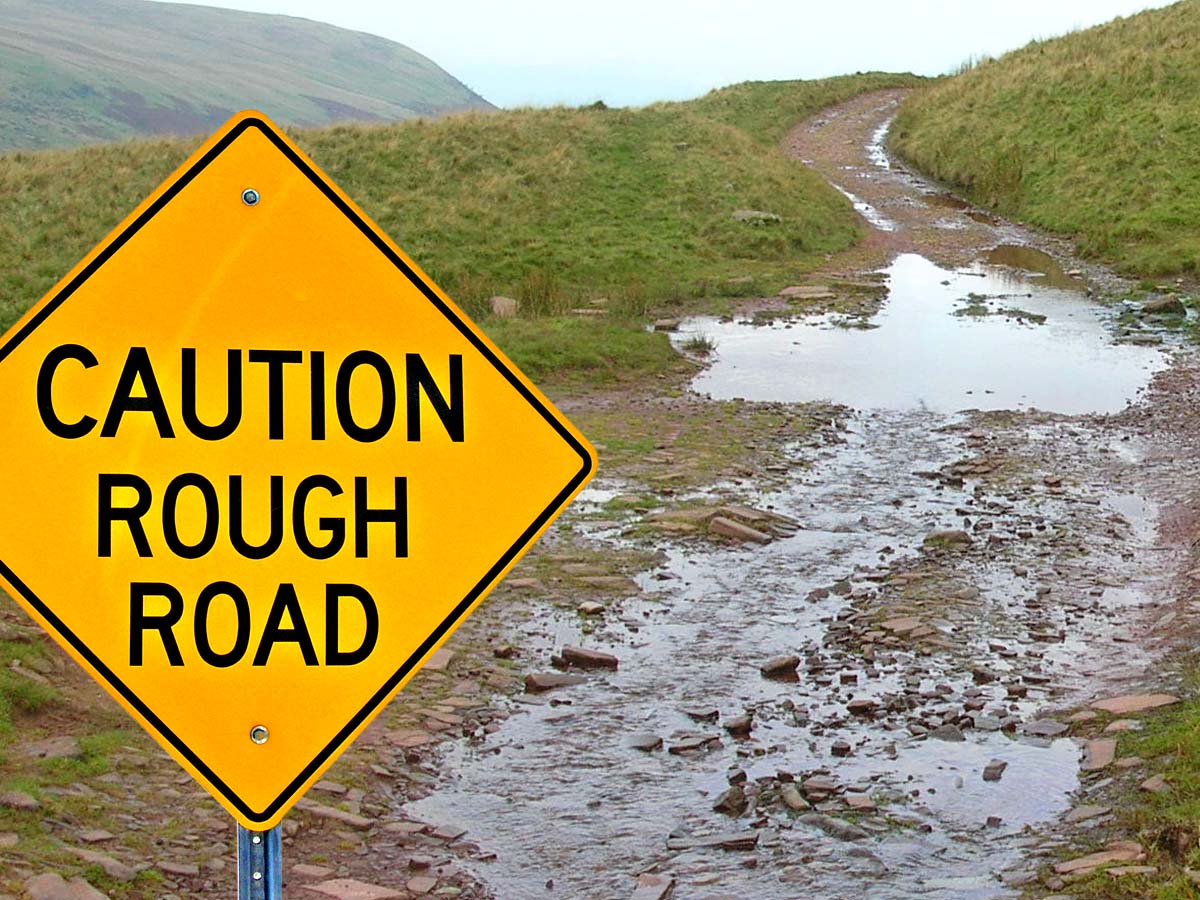 Over time one’s discernment gains clarity. The signs in our prayer, feelings, emotions, and experiences begin to solidify and point toward something. They prepare the way to a committed choice. But we may not know quite yet. As the prophet says, things are becoming more even. The rough places are becoming smoother. John the Baptist had the purpose of preparing the way for this hope that was the messiah. But John’s followers and those who heard about him were trying to discern whether he was the messiah. Can you blame them? They had yet to meet Jesus. What were the signs they saw? It was John who was preaching this good news of the messiah’s coming, the baptism of the Holy Spirit.
Over time one’s discernment gains clarity. The signs in our prayer, feelings, emotions, and experiences begin to solidify and point toward something. They prepare the way to a committed choice. But we may not know quite yet. As the prophet says, things are becoming more even. The rough places are becoming smoother. John the Baptist had the purpose of preparing the way for this hope that was the messiah. But John’s followers and those who heard about him were trying to discern whether he was the messiah. Can you blame them? They had yet to meet Jesus. What were the signs they saw? It was John who was preaching this good news of the messiah’s coming, the baptism of the Holy Spirit.
Making choices requires a weighing of the signs before us. Jesuits talk about tensions, in ministry, in the Church, in all kinds of situations. These tensions though are good, it means we are holding things at a balance, in freedom. We experience tensions in our discernment that pull one way or the other. The key is understanding what these things mean. First, consolation and desolation:
- Consolation – This can be described as a feeling of moving toward God. Our hearts are lifted and there are feelings of peace, goodness, and positive energy. Consolation does not always mean happiness. For example, if a loved one dies we may feel sorrow but experience consolation from the support of people around us. Consolation again is any feeling that helps us feel closer to God.
- Desolation – This can be described as a feeling of moving away from God. We move toward inward self-seeking behaviours. We may feel drained of energy, on edge, confused, and seemingly cut off from the love of God. These are times when our consciousness pings us that something’s not right.
| >> More on consolation and desolation here. |
When doing discernment exercises, as noted in last week’s post, it’s important to note feelings of consolation and desolation. Consolation is good.
And what about other things that sway us? The bible talks all about false gods. 1 John 4 says, “Beloved, do not believe every spirit, but test the spirits to see whether they are from God; for many false prophets have gone out into the world.” Ignatius believes truly that good and evil are real forces that are continually acting on our lives. Our discernment of these “spirits” are a way of preparing us for coming to a decision. Here are a few examples of what Ignatius says about the good spirit and the evil spirit:
- If you’re moving away from God the good spirit will raise doubts and try to change your course. On the other hand, if you’re moving closer to God this spirit will give you peace and reassurance.
- The evil spirit can be disguised as the good spirit, trying to pull you further away from God.
- The evil spirit tries to justify keeping sin, fears, problems, and temptations a secret.
- The good spirit brings secrets into light and leaves nothing hidden.
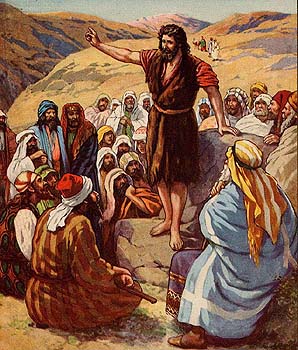 John the Baptist kept nothing secret. He brought the good news out into the open, a clear sign of the good spirit at work. The Canticle of Zechariah calls this out about John, saying he will be bringing knowledge of salvation and that the dawn of God shall break upon us, “to give light to those who sit in darkness and in the shadow of death, to guide our feet into the way of peace.” (Luke 1:79) In Matthew 11, Jesus speaks to the crowds about John. “What did you go out into the wilderness to look at? A reed shaken by the wind? What then did you go out to see? Someone dressed in soft robes? Look, those who wear soft robes are in royal palaces. What then did you go out to see? A prophet? Yes, I tell you, and more than a prophet. This is the one about whom it is written, ‘See, I am sending my messenger ahead of you, who will prepare your way before you.'” (Matthew 11:7-10)
John the Baptist kept nothing secret. He brought the good news out into the open, a clear sign of the good spirit at work. The Canticle of Zechariah calls this out about John, saying he will be bringing knowledge of salvation and that the dawn of God shall break upon us, “to give light to those who sit in darkness and in the shadow of death, to guide our feet into the way of peace.” (Luke 1:79) In Matthew 11, Jesus speaks to the crowds about John. “What did you go out into the wilderness to look at? A reed shaken by the wind? What then did you go out to see? Someone dressed in soft robes? Look, those who wear soft robes are in royal palaces. What then did you go out to see? A prophet? Yes, I tell you, and more than a prophet. This is the one about whom it is written, ‘See, I am sending my messenger ahead of you, who will prepare your way before you.'” (Matthew 11:7-10)
John was a sign among signs, just like Mary’s angel, or the acts performed by Jesus. But they are just signs, not the truth. They point to the truth and prepare the way. “You will see greater things than these,” Jesus once said. Discernment is filled with signs, requiring us to note the consolation from the good spirit and the desolation from the evil spirit. We know which direction to follow, what is pulling us one way or another. This is what we have at our fingertips and in our hearts to make a choice. God has not abandoned us. The rough places are being made smooth before our eyes.
| More on the discernment of spirits here. |
Music: Song of the Baptist, Francis Patrick O’Brien
Podcast music by Kevin MacLeod and audionautix.com

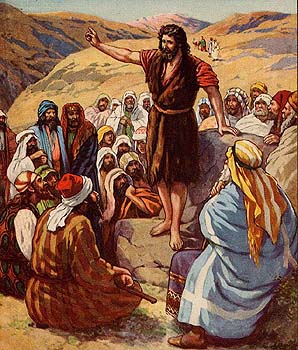


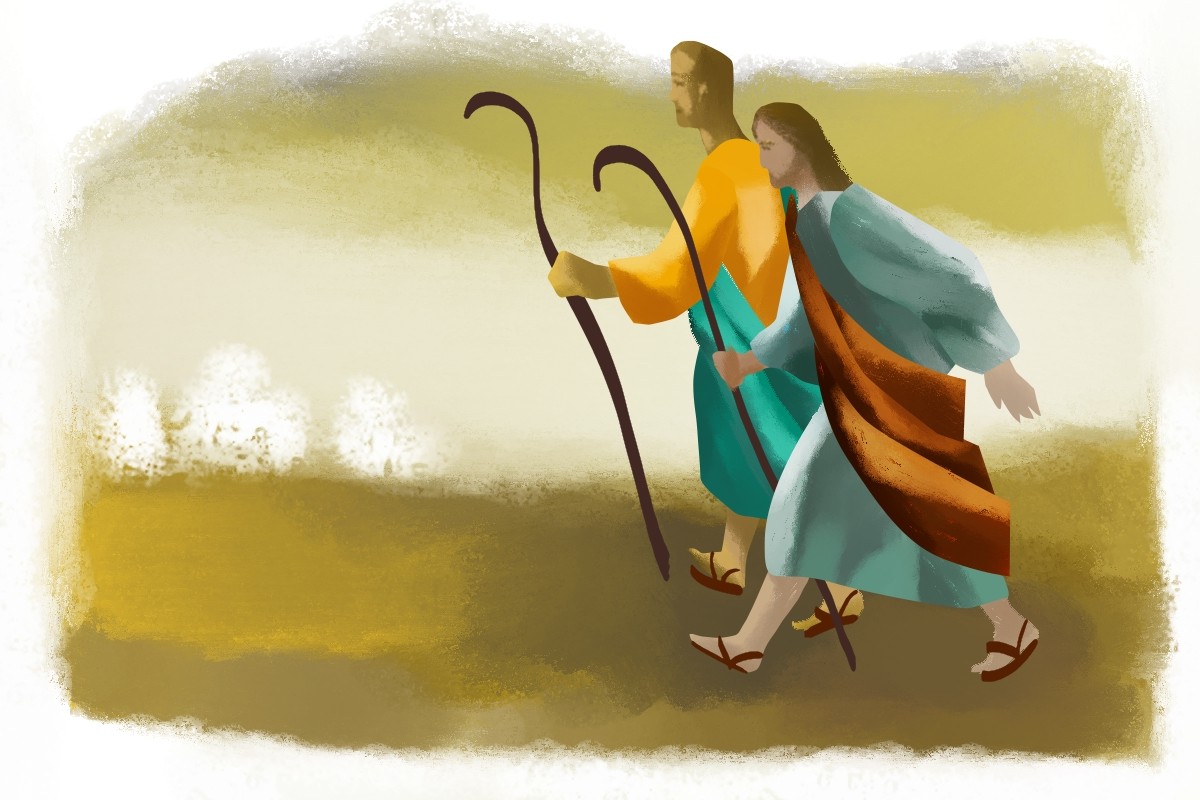



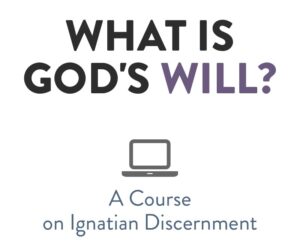
Trackbacks/Pingbacks